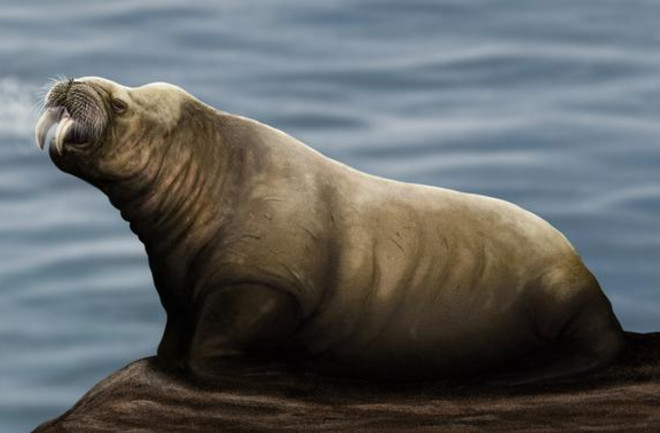Walruses are perhaps best recognized for their iconic tusks. But one thing that makes them unusual among modern marine mammals is the way they use suction to eat.
That ability appears to have been missing among many of the animal’s ancient relatives. But fossils now show that a newly named species developed that skill — perhaps as a way to adapt to a changing climate, according to a report in PeerJ Life & Environment.
This finding is both exciting and unusual because it showcases a potential example of two different species, separated by time and space, making similar adaptations — a phenomenon sometimes called evolutionary convergence.
“It's really something quite rare in the field of fossil marine mammals, to be able to observe an evolutionary convergence with these large animals,” says Mathieu Boisville, a paleontologist at the University of Tsukuba in Japan and an author of the paper.







